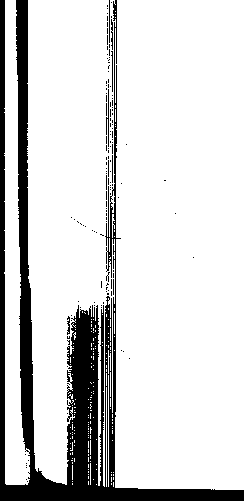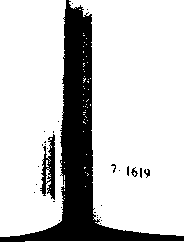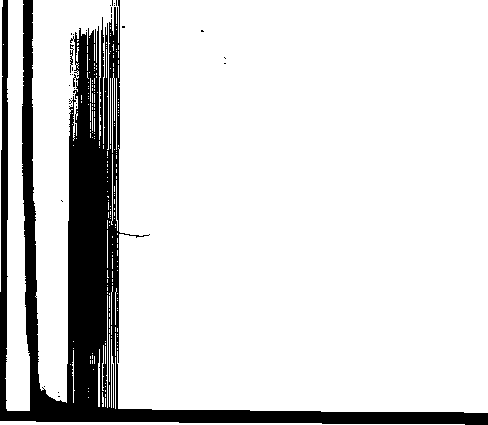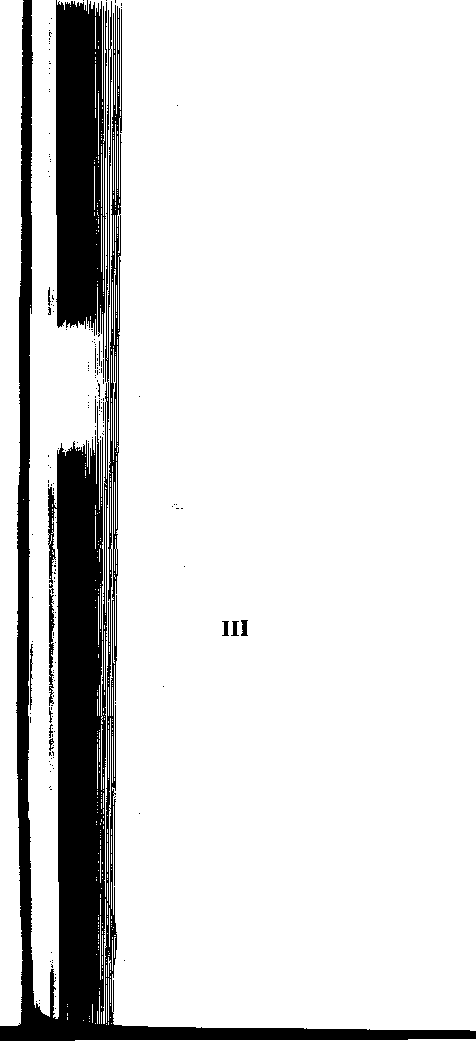Лекции по английскому языку для изучающих банковское и финансовое дело. Лекции по английскому языку для изучающих банковское и финансов. Составитель Н. А. Самуэльян
 Скачать 1.68 Mb. Скачать 1.68 Mb.
|
|
Parti TEXT Read Иге text below concentrating on its contents and terminology: However skilled a company is at selling goods overseas and whatever its size, exporting can, because of delays in receiving payment, seriously deplete cash flow and to that extent reduce profitability, unless the exporter arranges special finance. An exporter often has to allow credit terms to an overseas buyer, to cover the time not only needed to transport the goods, but also the period of production, sometimes of years in the case of large-scale projects or heavy machinery exports. In addition, there can be delay between payment by an overseas buyer and the actual receipt of funds by an exporter. Types of finance. There are two types of export credit. Under supplier credit an exporter allows credit terms to an 175  Active Vocabulary: Active Vocabulary: deplete allow credit with/without recourse overdraft overdrawing advance face value of the bill clean bill bill negotiation cash against documents charging interests collection fees Accepting Houses Committee bank bill . с discount 174
-1) аванс, авансирование 2) заем, ссуда
(Великобритания)
money market sale proceeds acceptance commission factoring sales accounting collect debts service charge standing of a company — 1) денежный рынок 2) рынок краткосрочного капитала
 overseas buyer in the sales contract and then obtains finance to cover these terms from a UK bank. With buyer credit a UK bank provides finance direct to an overseas buy«r, or an approved borrower, so that an exporter can be paid immediately on shipment of the goods. If the finance is with recourse, it means that an exporter is liable for any balance of funds the buyer does not repay to the lender. If the finance is without recourse, an exporter is not responsible to a lender for any default by a buyer. overseas buyer in the sales contract and then obtains finance to cover these terms from a UK bank. With buyer credit a UK bank provides finance direct to an overseas buy«r, or an approved borrower, so that an exporter can be paid immediately on shipment of the goods. If the finance is with recourse, it means that an exporter is liable for any balance of funds the buyer does not repay to the lender. If the finance is without recourse, an exporter is not responsible to a lender for any default by a buyer.Short-term finance. The first obvious method of financing export sales is through an exporting company's existing overdraft facility with its bank. It is clearly very simple and convenient to finance all the elements of the export contract (purchasing, manufacturing, shipping and credit) by simply overdrawing within the facility and replenishing the account with payments received from an overseas buyer. As business increases it is unlikely that an exporter can finance sales entirely from an overdraft, palricularly as borrowing in this way may be more expensive than other forms specifically designed for export credit. Advance against bills. One form of short-term finance for the exporter is to obtain an advance of funds from a UK bank against the face value of a bill of exchange drawn by an exporter on an overseas buyer under the terms of the export t contract. The exporter sends the bill to the bank which ad- [ vances an agreed percentage of tfie value to the exporter immediately and undertakes to present it to the overseas buyer for collection. If the buyer does not pay the UK bank for the bill then the bank has recourse to the exporter for the loss. An advance against a bill is made only when unaccompanied by arfy transport documents relating to the exported goods i.e. it is a clean bill collection. The bank charges interest for the credit period of the loan and fees for the collection operation. 176 Negotiation of bills. Obtaining an advance against bills is useful only when a limited amount of extra finance is required, the rest being covered by existing resources. If an exporter requires more finance in the short-term, an alternative method is to establish a facility for bill negotiation. The exporter's bank agrees to purchase bills (usually accompanied by the shipping documents) on presentation. The hank may even simply purchase the documents under a cash against documents collection. The bank then sends the bills for collection to the overseas buyer and reimburses itself when the buyer pays. If the buyer .defaults, the bank has recourse to the exporter, charging interest for the credit period any collection fees. A cheaper rate of interest is available to exporters holding ECGD1 insurance, and normally the exporter assigns the ECGD policy over to the bank as security. Acceptance credits. There are various merchant banks, members of the Accepting Houses Committee, which accept a bill of exchange drawn by an exporter on any of its members. This bank bill, as it is called, can be discounted (i.e. sold for its face value less a discount charge) in the money market to one of the discount houses that specialise in this business. The sale proceeds are credited to the exporter and when the bill matures, the bank pays it and debits the exporter's account for the amount plus an acceptance commission. Alternatively the exporter can draw another bill on the bank to be accepted and simply pay the difference between the face value of the maturing bill and the sale proceeds of the new one. A company can choose when to draw funds by gauging when there is the best discount rale in the money market, instead of being tied to overdraft rales of interest with a bank. Normally only the larger cxporler uses Ihis service. Documentary acceptance credits. With a confirmed irrevocable letler of credit an exporter can receive finance im- ECGD — Export Credit Guarantee Department. 177  mediately on presenting to the UK confirming bank a bill of exchange and the documents required under the terms of the credit. The bank can accept a term bill for extended periods which the exporter can then discount with any bank for cash. Any cost is charged to the exporter unless it has been arranged for the overseas buyer to bear costs. mediately on presenting to the UK confirming bank a bill of exchange and the documents required under the terms of the credit. The bank can accept a term bill for extended periods which the exporter can then discount with any bank for cash. Any cost is charged to the exporter unless it has been arranged for the overseas buyer to bear costs.Factoring. If export turnover is sufficiently large, an exporter may find it easier to shift the problems of collecting the payment for completed orders over to organisations that specialise in the task of debt collection and trade finance. An exporter can sell trade debts to a factoring company, usually a subsidiary of a major clearing bank. In return the exporter receives up to 80 per cent of the face value of the debts. The factoring company handles the sales accounting and carries out the task of collecting the debts from overseas buyers. The factoring company regularly monitors sales ledgers for the exporter. When the factoring company receives payment it credits the exporter with the 20 percent balance, deducting an amount for service charges. If the overseas buyer defaults on a debt, there is no recourse to the exporter. The factoring company still pays the remaining 20 per cent, less charges, on the due date. Because of this a factoring company makes an agreement with an exporting company only after examining closely the standing of the company and the reliability of an overseas buyer, and indeed of the buyer's country. 178 A factoring company may be prepared to buy the goods destined for an overseas buyer for cash. The exporter then acts as the factor's agent, delivering the goods and collecting the proceeds. If the buyer does not know that the exporter has raised finance through a factoring house to export the goods, fit is called undisclosed factoring. The exporter still deals directly with the buyer for payment of debts. Comprehension. Answer the following questions: 1 Why does the exporter have to arrange special finance for his exports?
for his exports from his bank?
12. Why is it a good thing for the British exporter to be a holder of EGGD insurance? i , •
18. Does the factoring company have recourse to the exporter if the buyer defaults?
179   II IIComprehension. Complete the following on the basis of the text:
of the exporter, it with recourse to the exporter in case
12. If unfortunately the foreign buyer has become insolvent, the loss Arrange your knowledge of financial terminology by group ing the terms required under appropriate headings:
180
I IV You are given below a list of financial one-word-terms, list all terms-phrases you can associate with them: 1. Credit 2. Interest 3. Rate 4. Bond 5. Purchase 6. Leasing 8. Payment 9. Overdraft 10. Forfeit 11. Discount 12. Collection Make sentences with these terms. Test. Fill in the missing words: . A conventional overdraft facility is often used by exporters to transactions where credit terms extend over a period and is commonly used during and for the period prior to of the goods. It is sometimes possible for advances of an agreed percent age to be made against the value of a bill of exchange by an exporter on an overseas buyer entrusted to the bank for In approved cases banks will negotiate foreign on behalf of their customers for amounts up to pre-agreed lim its. The bank in effect the bill for the face amount with recourse to the in the event of non-payment. When the bill is paid the resultant proceeds are used to repay the made when the bill was purchased, the exporter paying fees and for the credit period. Factoring is a service being used more and more by who need, through the growing level of competition in trade, to extend open credit to foreign customers with resulting problems such as: How much should be given ? On what ? What are the risks? How should the exporter go about payment given the differences in lan guages, law and practice? 181 I Unit Six Short-term Export Finance Part II Active Vocabulary: confirming house place an order export finance house credit assessment export house reimburse promissory note premium recourse counter claim warranty sight bill конфирмационный дом (Великобритания) размещать заказ фирма экспортного финансирования оценка кредита экспортная фирма погашать простой вексель, долговое обязательство
встречный иск гарантия, поручительство предъявительский вексель TEXT Read the text below concentrating on its contents and ter-minology: Confirming house. A confirming house is effectively an agent for an overseas buyer. The confirming house, acting for a buyer, places an order with an exporter and deals di- rectly with the exporter to complete the contract. In this vvay there is no overseas credit risk or financial burden for the exporter, because the confirming house gives short-term credit to the overseas buyer who pays a commission for the services provided. A specialised form of confirming house is a buying house which makes purchases in the UK for overseas department stores. Export finance house. If an exporting company sells only occasional large value capital or semi-capital goods abroad it may be better for it to use an export finance house to handle an overseas contract. An export finance house is particularly useful in coordinating finance when an overseas buyer is supplied by several companies, none of which wishes to take the major responsibility for arranging the finance for the contract. The export finance house provides cash to the exporter on shipment and credit to a buyer. It handles the credit assessment of a buyer, takes out*any necessary insurance, and if a buyer defaults there is no recourse to the exporter. The export finance house is able to take the risk of providing and managing export credit in foreign currencies, relieving its UK customer of these burdens. Export houses. Export orders are not directly financed by export houses. They buy products from an exporter, acting either as an export merchant, i.e. buying and selling goods overseas, or as an export agent where an exporter receives payment for goods upon shipment and the export agent provides credit to the overseas buyer, promotes the goods abroad, holds stocks in the UK, and even acts as an export sales department. Short-term ECGD-backed finance. In addition to those sources of short-term finance already mentioned, the UK government's Export Credits Guarantee Department (ECGD) guarantees finance for exports for periods normally UP to two years. ECGD does not itself credit to the exporter because it is an insurance agency. But it provides a guarantee to the 183 exporter's bank to reimburse it if any overseas buyer defaults on payment. With this guarantee the bank can finance the exporter's business at preferential rates of interest. There are two ECGD bank guarantees for short-term export finance: one covering business where the method of payments is bills of exchange or promissory notes (the Bills or Notes Scheme); and the other for business transacted on open account terms (the Open Account Scheme). The exporter decides how much finance is likely to be required at any one time and applies to ECGD for a guarantee to be given to a bank for this amount. When ECGD has indicated its willingness to issue a guarantee for this amount, the bank issues to the exporter a facility letter which outlines the terms and conditions under which finance is available. The facility is on a "revolving credit" basis and is renewable annually. ECGD charges the exporter a premium for the bank guarantee. Before agreeing to provide a bank guarantee, ECGD requires an exporter to sign a recourse agreement which ensures that ECGD can turn to the exporter for payment if it has to pay sums to the exporter's bank under the guarantee The exporter then makes a counter claim on ECGD under the comprehensive short-term insurance already obtained Bills or notes scheme. The bills or notes guarantee covers finance for contracts with credit terms of less than two years. Normally an exporter must have held an ECGD comprehensive insurance policy for an acceptable period, which could be as much as 12 months. The exporter presents a bill of exchange to the bank together with documentary evidence that the goods have been exported from the UK and a warranty which confirms that the exporter has complied with the basic ECGD insurance cover. The bank then makes an advance of 100 per cent of the farfe value of the bill or note, excluding any interest element. Until the bill is accepted by the overseas buyer, the bank has recourse to the exporter. After it is accepted the bank has recourse to ECGD and not to the exporter. Sight hills are always with recourse while promissory notes are not. The bank deducts a small fee per item at the time of the advance, takes its normal commission for collecting the bills or notes, and charges interest at a margin above its base rate on a day basis. On receiving the proceeds of the collection the bank reimburses itself for the advance made to the exporter. Open account scheme. The bank advances funds to the exporter up to the total value of the invoice against a promissory note issued in favour of the bank, assuming the note docs not go over a credit limit agreed when the facility was established. If the overseas buyer defaults and the exporter cannot honour the promissory note, the bank claims from ECGD, which in turn has recourse to the exporter. Funds can be advanced for up to six months from date of shipment to the overseas buyer. I Comprehension. Answer the following questions: 1. What part does a confirming house play in export/import trade?
10. When can an exporter apply for the bills and notes guar antee?  185 184
II Comprehension. Complete the following on the basis of the information given in the text: 1. By using the services of a confirming house the exporter avoids overseas credit risk or financial burden because it is which gives to
, thirdly to and to 4. As ECGD is an insurance company, it doesn't but it
10. When the bank makes an advance it charges and then it and •11. If the overseas buyer defaults, the bank which Ill The two texts on short term export finance provided you with a set of specialized terms. It is time now to arrange them in groups describing definite financial operations. You '. 186 wiU see that terms of more general character often have their synonym (e.g. profit, gain, proceeds) while the very specific ones (e.g. types of bills or export finance houses) have, as a rule, only one name. This results in a great precision of information passed, and you can never be too precise where money is concerned. By filling in the table below arrange the. knowledge on the terminology of finance you have already acquired: Terms related The main term Its synonyms (if any)
10. Proceeds Having filled in the, table above, use the terms you have just listed in sentences of your own. IV Complete the following:
187
Unit Seven Medium Term Export Finance |
